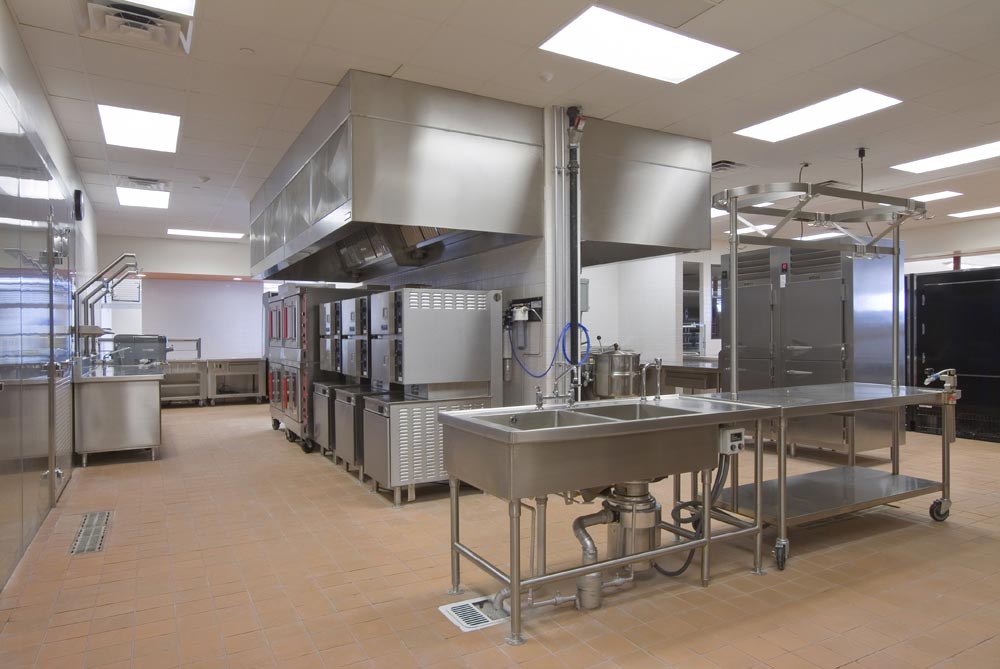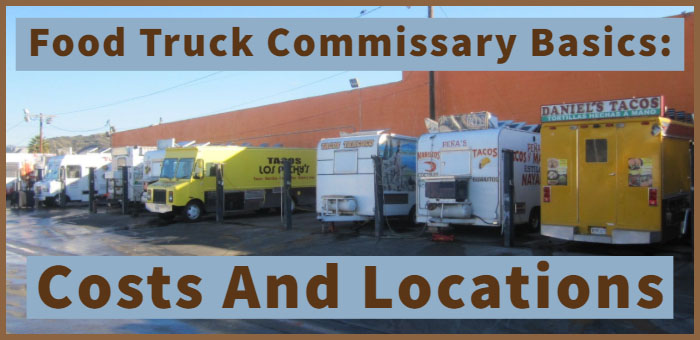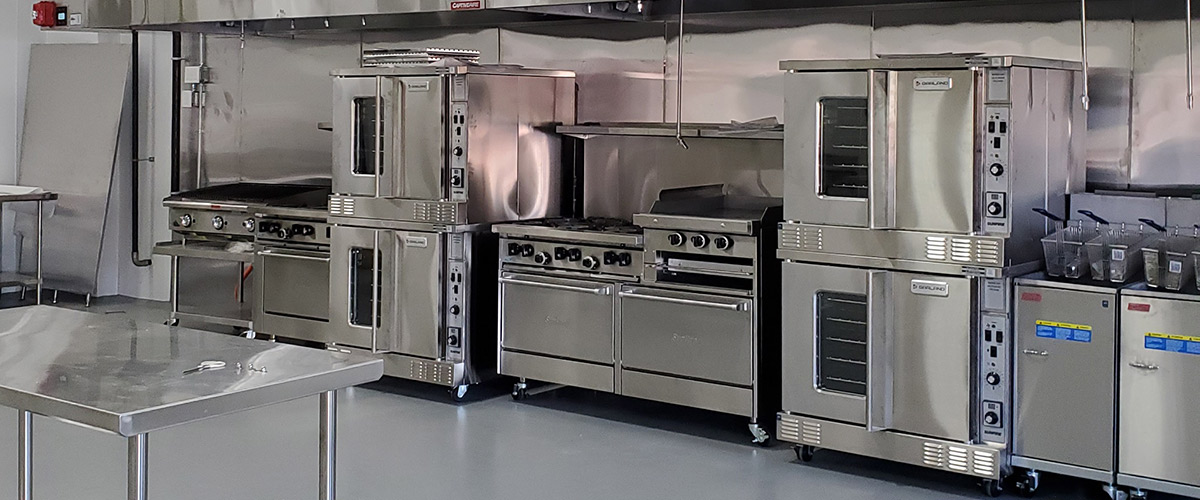Food truck commissary – Welcome to the world of food truck commissaries, where culinary innovation meets operational efficiency. Food truck commissaries are the unsung heroes of the food truck industry, providing essential services that enable food truck operators to thrive. Join us as we explore the intricacies of food truck commissaries, from their functions and regulations to the benefits they offer and best practices for operation.
Food truck commissaries are dedicated facilities that provide food truck operators with a safe, sanitary, and compliant environment to prepare, store, and maintain their food trucks. They offer a range of services, including commercial kitchen space, equipment storage, waste disposal, and administrative support.
Food Truck Commissary Overview
A food truck commissary is a commercial kitchen space that is specifically designed to meet the needs of food trucks. It provides food truck operators with a safe and sanitary environment in which to prepare and store their food, as well as access to shared equipment and resources.
Food truck commissaries offer a variety of services to their members, including:
Services Offered
- Commercial kitchen space
- Refrigeration and storage
- Equipment rental
- Food safety training
- Business support services
Types of Food Truck Commissaries
Food truck commissaries vary in size, location, and amenities, catering to different needs and preferences of food truck operators. Each type offers unique advantages and drawbacks, and choosing the right one depends on the specific requirements of the food truck business.
Size
- Small Commissaries:Typically located in urban areas with limited space, these commissaries offer basic amenities like shared kitchens, storage, and cleaning facilities. They are suitable for small food trucks with minimal equipment and staff.
- Medium Commissaries:Located in suburban or industrial areas, these commissaries provide more space and amenities, including dedicated kitchens, prep areas, and loading docks. They are ideal for food trucks with larger operations and higher production volumes.
- Large Commissaries:Often found in rural or industrial areas, these commissaries offer extensive facilities, including multiple kitchens, dining areas, and cold storage. They are suitable for large food truck fleets or businesses with high production demands.
Location
- Urban Commissaries:Located in city centers or densely populated areas, these commissaries offer convenience and accessibility for food trucks operating in urban environments. However, they can be more expensive and have limited space.
- Suburban Commissaries:Situated in suburban areas outside city centers, these commissaries provide a balance between accessibility and affordability. They offer more space and amenities than urban commissaries but may require longer travel times for food trucks.
- Rural Commissaries:Located in remote or rural areas, these commissaries offer low costs and ample space. However, they can be less accessible for food trucks operating in urban areas and may have limited amenities.
Amenities
- Basic Amenities:These commissaries provide essential amenities such as shared kitchens, storage, and cleaning facilities. They are suitable for food trucks with basic equipment and limited staff.
- Advanced Amenities:These commissaries offer additional amenities such as dedicated kitchens, prep areas, loading docks, and dining areas. They are ideal for food trucks with larger operations and higher production volumes.
- Specialized Amenities:Some commissaries specialize in providing specific amenities, such as commercial-grade kitchens, refrigeration and freezing units, or equipment rental services. They cater to food trucks with unique or specialized needs.
Regulations and Licensing
Operating a food truck commissary requires strict adherence to regulations and licensing requirements. These regulations ensure the safety and quality of food prepared and handled within the commissary.
Health and safety standards are paramount in the food industry. Food truck commissaries must comply with local, state, and federal regulations to maintain a clean and sanitary environment. This includes regular inspections, proper food handling and storage practices, and adherence to temperature control guidelines.
Licensing Requirements
- Business License:Required to operate any commercial business, including food truck commissaries.
- Food Establishment Permit:Issued by the local health department, this permit ensures the commissary meets specific health and safety standards.
- Food Handler Permits:Required for all employees who handle food, demonstrating their knowledge of safe food handling practices.
- Special Permits:May be required for specific operations, such as mobile food vending or catering.
Benefits of Using a Food Truck Commissary

Leveraging a food truck commissary offers a plethora of advantages for food truck operators. These facilities provide a shared space equipped with commercial-grade appliances, storage areas, and utilities, allowing food trucks to operate efficiently and in compliance with regulations.
Cost Savings
- Reduced Rent and Utility Expenses:Commissaries offer shared spaces, reducing individual rental costs and utility bills for food truck operators.
- Bulk Purchasing Discounts:Commissaries often negotiate bulk discounts on ingredients and supplies, which can significantly lower food costs for operators.
- Equipment Sharing:Commissaries provide access to expensive equipment, such as refrigerators, stoves, and dishwashers, eliminating the need for individual purchases.
Efficiency Improvements
- Centralized Location:Commissaries are typically located in convenient areas, reducing travel time and maximizing efficiency.
- Dedicated Prep Space:Commissaries offer dedicated prep areas, allowing food truck operators to prepare food in a clean and organized environment.
- Streamlined Food Production:Commercial-grade appliances and ample storage space enable efficient food production, reducing preparation time.
Compliance Advantages
- Health Inspections:Commissaries are regularly inspected by health authorities, ensuring compliance with food safety regulations.
- HACCP Certification:Many commissaries offer HACCP certification assistance, which is essential for food truck operators.
- Waste Management:Commissaries provide proper waste disposal facilities, ensuring compliance with environmental regulations.
Choosing the Right Food Truck Commissary
Selecting the ideal food truck commissary is crucial for ensuring efficient and compliant operations. Consider the following factors to make an informed decision:
Location
Proximity to your operating areas is paramount. Choose a commissary that allows you to minimize travel time, reducing fuel costs and maximizing productivity.
Amenities
- Commercial Kitchen:Verify the availability of a fully equipped commercial kitchen with adequate space, equipment, and storage.
- Cold Storage:Ensure the commissary provides ample refrigeration and freezer space to maintain food safety.
- Waste Disposal:Proper waste disposal facilities are essential for maintaining hygiene and complying with regulations.
- Water and Electricity:Access to reliable water and electricity is crucial for daily operations.
Cost
Compare the pricing of different commissaries, considering both rental fees and any additional services or utilities included. Determine the cost-benefit ratio to find the most economical option.
Best Practices for Food Truck Commissary Operations

Maintaining efficient and compliant operations at a food truck commissary is crucial for ensuring the safety and quality of food served by the commissary’s tenants. Here are some best practices to consider:
Inventory Management
Effective inventory management is essential to prevent food waste and ensure the availability of necessary ingredients and supplies. Implement regular inventory checks, establish par levels for each item, and utilize a first-in, first-out (FIFO) system to prevent spoilage.
Equipment Maintenance
Regular maintenance of equipment is paramount to prevent breakdowns and ensure the safe and efficient operation of the commissary. Establish a maintenance schedule, conduct daily inspections, and keep a log of repairs and maintenance activities.
Food Safety
Ensuring food safety is the top priority for any food truck commissary. Implement HACCP (Hazard Analysis and Critical Control Points) principles, train staff on food handling and sanitation procedures, and conduct regular inspections to identify and mitigate potential hazards.
Communication
Open and regular communication between the commissary and its tenants is crucial for smooth operations. Establish clear guidelines, provide regular updates, and facilitate communication channels to address any issues or concerns promptly.
Staff Training, Food truck commissary
Well-trained staff is essential for maintaining compliance and efficiency. Provide comprehensive training on food safety, equipment operation, and sanitation procedures to ensure that staff understands and follows best practices.
Emerging Trends in Food Truck Commissaries

The food truck commissary industry is constantly evolving, with new trends emerging all the time. Technology and innovation are playing a major role in shaping the future of food truck commissaries.
One of the most significant trends is the use of mobile apps. Food truck commissaries are using apps to manage their operations, from scheduling to inventory to customer service. This is making it easier for commissaries to run their businesses more efficiently and effectively.
Another trend is the use of automation. Food truck commissaries are using automated systems to streamline their operations. This is freeing up staff to focus on other tasks, such as providing better customer service.
Finally, food truck commissaries are increasingly focusing on sustainability. They are using eco-friendly practices to reduce their environmental impact. This is making food truck commissaries more appealing to customers who are looking for sustainable options.
Technology and Innovation
- Mobile apps for managing operations
- Automated systems for streamlining operations
- Eco-friendly practices for reducing environmental impact
Essential Questionnaire
What is the primary purpose of a food truck commissary?
Food truck commissaries provide a licensed and inspected facility where food truck operators can prepare, store, and maintain their food trucks in compliance with health and safety regulations.
What types of services do food truck commissaries typically offer?
Services offered by food truck commissaries may include commercial kitchen space, equipment storage, waste disposal, administrative support, and access to shared resources.
What are the benefits of using a food truck commissary?
Benefits of using a food truck commissary include cost savings, efficiency improvements, compliance advantages, and access to specialized equipment and resources.
